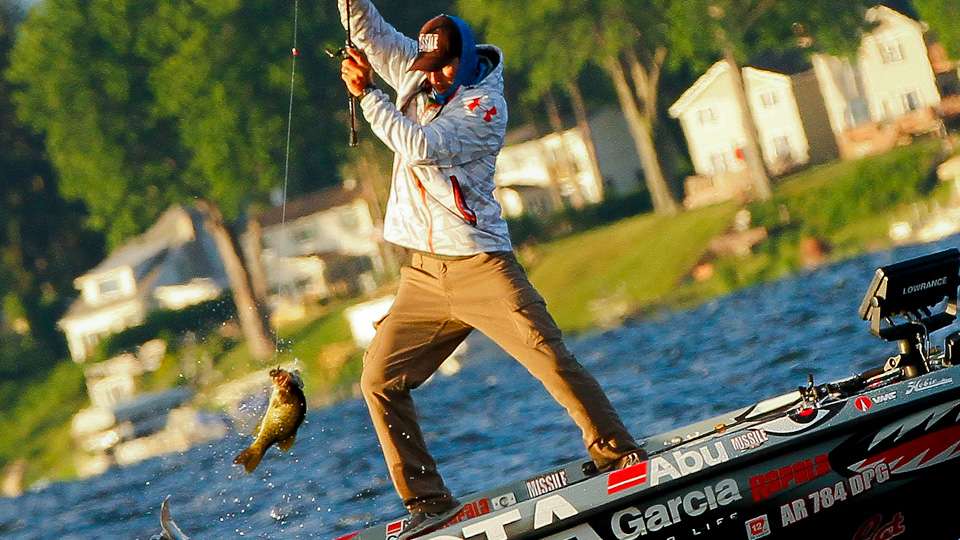
I’ve chased smallmouth bass since I was a kid fishing in the Pocono Mountains. They’re one of my favorite fish to catch. In truth, they fight harder than largemouth and they jump higher. I’m especially impressed by how they make that one last run for freedom at the boat. They don’t roll over, and they don’t quit.
They’re fun to catch anytime but the postspawn is when smallmouth fishing is at its best. And, for most of the country that’s right now, or it will happen in the next week or two.
In some ways smallies aren’t all that different from largemouth at this time of the year. They move in on their beds as the days lengthen and the water warms — smallmouth move about 5 degrees before their green cousins — and when they leave the beds they go into a funk for a few days. Like they did earlier, however, they leave their beds about 5 degrees before the largemouth.
But that’s where the similarities end. Smallmouth are much more aggressive after their recovery period and before they move into their summer patterns and they don’t make as many stops along the way.
A typical smallmouth will stop at the first or second break out from their bed. He or she will stay there a day or two and then go on a crazy feeding binge. At times you can catch the same fish three or four times a day.
When they’re I n this mode they’ll eat anything that you throw at them if it even remotely resembles food. You don’t need to buy anything new. What’s already in your tackle box will catch them. I’ve caught hundreds of them on hard jerkbaits, plastic jerkbaits, spinnerbaits, vibrating jigs and trick worms.
But when I close my eyes and think about the very best days I’ve ever had catching postspawn smallmouth it was with a walking stick. Back in the day it was always with a Zara Spook but now there are 50 good ones around. My preference is a Skitter Walk or a Skitter V. Both are made by Rapala.
Fishing one is not difficult. Watch a video on how to walk the dog and then make long casts and bring your lure straight back to the boat. Sometimes a stop or two along the way will trigger a strike but on most days a straight and steady retrieve will do the trick.
Once that feeding frenzy is over they move directly out to deep water. Largemouth almost always make several stops along the way but not brown bass. They pack up and leave in a hurry. The whole process from bedding to deep water usually takes no more than a week, and the period between the first stop and deep water is maybe four days.
That means, as a practical matter, that the window of opportunity closes quickly on the postspawn. You need to watch what’s happening carefully. Check lake and river conditions every couple of days and then hit it when things are falling into place.
If you live in smallmouth country, get your tackle ready and stay alert. This is something that only happens once a year. You don’t want to miss it.





